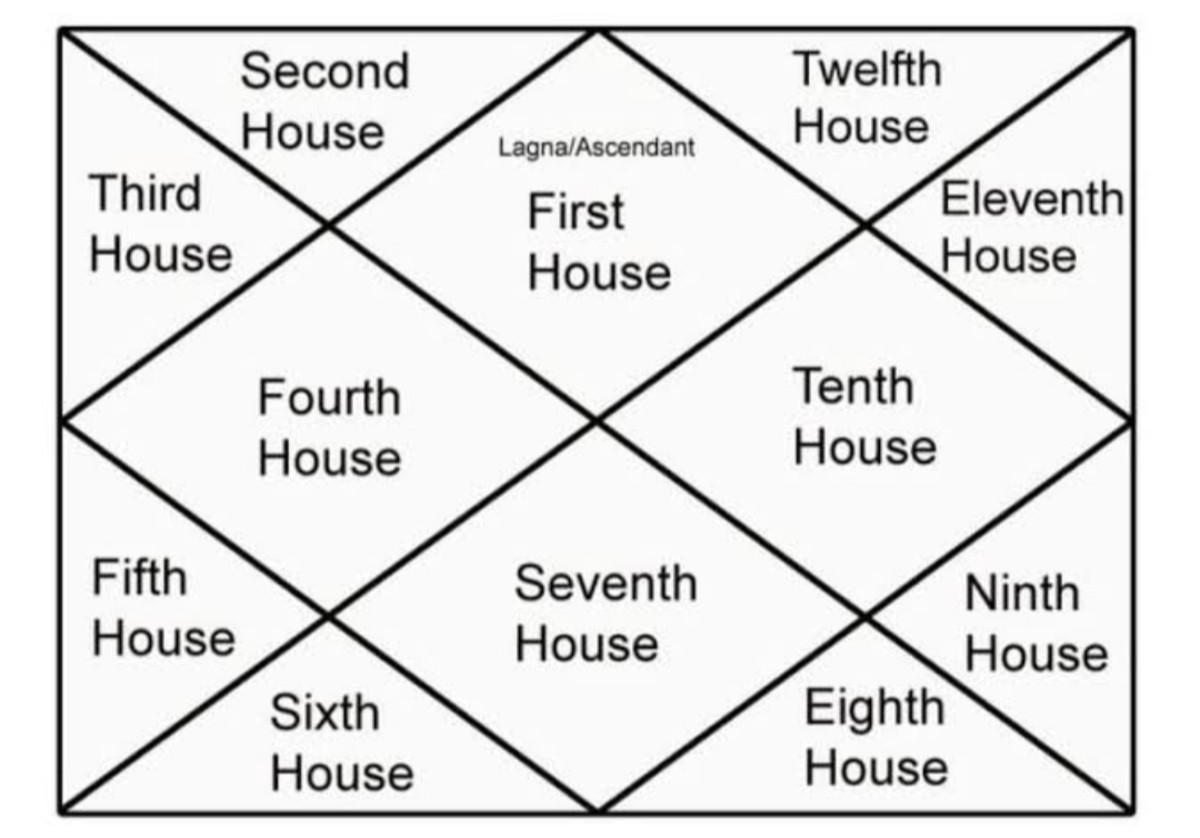How To Become A Killer Copywriter And Get A Featured Hubpage

You don’t have to be Shakespeare to become a great Hubpages copywriter. (You just have to be you-nique!)
If you think Hub writing will display your uniquely wonderful personality and the world will respond in kind, you may want to reconsider. It’s not that you don’t have a wonderfully unique personality; simply put, there are rules to Hub writing, if you want success. Just about anyone can succeed at this game. You just need to learn the game. If you are successful at anything else, you can probably do this. And you may be an excellent writer. However, a champion chess player, doesn't necessarily make a winner at gin rummy. If you have a low Hubber score or your Hubs are not featured, don't worry; you probably have what it takes, you’re simply not aware of the rules of the game.
As a new Hubber with only 14 hubs so far, all of my hubs have been featured; I've won the "Rising Star" award twice, have five accolades, and two have been selected for an "Editor's Choice" award. My individual Hub scores now vary from 78 to 84 and my profile score fluctuates, but has risen to 95 on occasion.
The Hubber Game
I did come into this with a slight advantage. With several years of experience as a successful direct response marketing writer, I find that many of the rules transfer. When writing about a product or service, you have to be specific in what you are trying to communicate. It's done in terms of headlines, subheads, and bullets that virtually translate into key phrases and their variations automatically.
However, the Hubber game is a new game. Even with that strong background, I listen very carefully to the advice of successful Hubbers. One of my favorites is a young woman here on Hubpages that is the same age as my youngest daughter, and let me tell you, she’s my guru! I see her as a young entrepreneur who is generously sharing her knowledge.
Successful people rarely waste time in trying to cripple the competition. Success comes from what you build, not what you tear down. The big picture is, the more Hubbing, the larger the Hub entity, the better for you when you are a part of it. I don’t know if that is her philosophy, or she is just a helpful person, but her advice has been terrific for me. I have been out of the e-marketing and key word environment for a few years, and her specific advice put me right back in the driver’s seat on how to use the key word tools successfully, which is an essential piece of the Hubbing puzzle.
There are many helpful Hubbers and you can find some in the Hubber Forum. My little Hubber Guru goes by the name of Angryelf , and you can find all you need to know about using key words, in people-friendly language on her hub “How to Drastically Improve Traffic and Earnings On Hubpages Successfully!”
Don't Shoot Yourself In The Foot Before You Start
But, you may be thinking, there are over 70,000 other Hubbers and everything I type into google has already been written about, like a thousand times!
Ah, a daunting task. or is it? Just because three million people already have babies, doesn’t mean yours won't be totally unique.
Listen, let me tell you a secret (but don’t tell Angryelf)…I don’t even look up my topic until I’m well into writing about it. And, I never check to see if other Hubbers have already written on it. For two reasons: 1) I don’t want to contaminate my own ideas, and, 2) I don’t want to intimidate myself.

3 great ways the internet spins to your own advantage.
-
Abundance of reference material: This is perhaps the best reason why the world of unending word-smithing is a good thing; I can write whatever I want, and just about always find a few specific and very appropriate references for my own article. It’s like having a library at your fingertips, that you can use with discretion.
In an article about shopping for puppies, I wouldn’t reference an article that might be titled, My Dog Buying Experience because that would be too similar to mine. Be careful of just throwing links in for back up. Make sure you read the entire article you reference. But you could include references such as, “the most popular dogs for kids” or “Highly rated pet stores chains in the U.S.” In that way you’ve used the flooded internet to your advantage. - High traffic zone: Another advantage of the internet world is simply that it provides you with a vehicle. Think of it like the most popular shopping mall in your neighborhood. If someone offered to set up a little shop for you for free, would you rather have it at that popular shopping mall, or on an off street where there is no competition, AND not much buying traffic.
- Abundance of consumers: Once I’m well into my article, I start using the key word tools. So far, I’ve always managed to find a meaningful traffic flow of internet traffic on some aspect of my topic. Granted, I may adjust what I emphasis so that I’m speaking to that specific audience or interest as it appears in the internet world.
Good tip for a beginner copywriter.
My boss at my first copywriting job gave me this good advice. Imagine you are having coffee with a friend. Write as you would be talking. It doesn't matter if you write in first or second person, write in the way in which you are most comfortable conveying an idea. Whether you have a college background and have experience in organizing your thoughts for paper writing or you are an avid rock climber and love telling about your adventures, you have your own style of communicating that comes naturally. Let your wonderful mind do all the work.

You are your own best hub-writing resource.
Lighting the match with a wandering mind.
Every thing you do or see leaves an impression on you. You may find yourself telling your spouse or friend about an experience of yours with enthusiasm… anything from shopping for a puppy to changing a tire that went flat. That enthusiasm is the key. When your mind is engaged and interested, it’s like lighting a match, the fire wants to intensify and expand, and turns the topic every which way to examine all the details. Just like when you’re telling someone about a great night out on New Year’s eve, you have high energy, you don’t want to be interrupted, and you have very specific comments on every fact.
Notice, for this step, I didn’t say, look for the experience, or analyze the experience while you’re in it. That’s because I do not tackle this project like a journalist. In fact, at one of my copywriting jobs, my manager told me she never hires journalist majors as copywriters. I’m not exactly sure why, I guess the approach is different when one is looking for creative presentations rather than story reporting.
This key ingredient for my process takes place after the experience. In fact, this is how I know I may have something to say about it. If an experience sticks in your head, and you find yourself thinking about it and talking about it later, that’s a clue that this may be a good Hubber topic for you.
Additionally, in order to attain... let’s call it the ‘after-glow’ of experience, you need to give yourself time and space to think about things. If you wake up to the television and go to sleep after facebooking, you may not be giving yourself a chance to think about anything. Some of my best ideas come when I’m in the shower or before fall asleep at night. I think it’s very healthy for writers to habitually separate from all stimuli; practice thinking about nothing and relaxing. When you let your mind wander and daydream, the interesting stuff will surface. Your own personal viewpoint takes shape. All the things you have seen, experienced, participated in recently will have had time to gel and give you an advanced, historical point of view. Wah lah! Your own, unique perspective.
My ABC's Of Writing Hub Copy
A. Don't start until you're ready.
I find that the preferred length of Hubs is a great fit for a basic compelling argument. The 1250-word length is just the right size to say your peace. Read it aloud and notice that it takes the same amount of time to tell someone a good story.
Having said that, I never sit down to write until I have a basic outline in my head. Perhaps I'm staring out the window at some clouds… and I get an idea…such as, "wow, customer service has really declined," I'm not going to move until I've given myself enough time to consider three to five reasons why this is so, or a couple observations of this, and corresponding theories of why this has happened. Then, quickly hit the keyboard, and rough out your outline. During writing, you'll find yourself elaborating, adding points, and refining your ideas.
Organize Your Thoughts
B. Organize your thoughts.
Respect the basic rule of writing: make a statement, and provide supporting evidence. You do this every day in day-to-day conversation. Whether you are telling your college bound son how to scramble eggs or are giving directions to the closest Walmart, you are organizing your thoughts. Whether it's a sequence of events or a number of facts or opinions that support one main idea, be clear and organized. Be sure to turn one of your paragraphs into numbered points, and/or another into a list of bullets. Readers love reading well-organized copy.
C. The main idea.
When you are talking, do you notice that it can be annoying when someone interrupts you, and more annoying when they hi-jack the conversation by changing the topic. That's because you were trying to make a point. You were focused on your topic. Use this skill when you are writing. Know your topic, and don't write anything that is not supporting your topic and don't diverge from your topic.
Also, the listener and reader prefer to know where they're going before committing to the trip. So be sure to make your topic known by stating the point you will be making at the beginning. As you develop your article, you will probably go back again and again to further refine your main topic idea. Sometimes you won't even know what it is yourself until you talk/write about it for awhile. Why did the fast food place leave you frustrated. After you write for awhile, your point will become more clear and lucid.
Perhaps you've had a conversation where your audience was getting inpatient. That may very well have been because they didn't know, for example, why you were describing every stop you made on your way to an appointment: they didn't know your topic. If you had stated in the beginning that the point is that an unusual amount of traffic interruptions made you late for work, the audience would have been much more receptive.
D. Finally, write a great headline.
In the world of copywriting we strive for writing benefits, as apposed to writing in terms of features. However, I think this is useful in any format because it seems readers will be much more likely to become involved when there's something in it for them (benefit), vs. a fact (feature).
Here's a cool way to turn a feature into a benefit. It's another good tip I received from a former employer: Once you draft your headline (or sub head, or first line of a paragraph), read it aloud and then ask yourself "so what?" Revamp. As many times as you need to. It works like this.
It's warm in Florida. So what? The warm climate in Florida let's you swim all year. So what? Florida is a fun place to live. Then a little polishing: Year Round Summer Fun Makes Florida A Great Place To Live!
E. Proofing and editing.
Proof your content, including use of visuals. You can refer to Hubpages standards for your guidelines, and proof for good use of key phrases, per Angryelf suggestions (see link above). I keep all of my regularly used links bookmarked (see reference chart below), and always give myself a day or so before going back to proofread for writing errors.
- Proofread for typos: spelling, punctuation, sentence structure
- Check your keyword; how you've used it, and how much traffic it generates per Google.
- Consider how your Hub will do per the Hubpages QAP (Quality Hub Process), and you can learn more about the QAP at the Learning Center Guide.
- Check your Content Capsules; have you included a variety of capsules other than plain text?
- Make sure your pictures are legal, and accurately sourced.
- Wait a day, and re-read your content with fresh eyes to catch grammatical errors and tweak.
- Finally, use your common sense… and your imagination. Ask yourself who is going to click on your article, and why. If everything looks good, you're good to go. Publish.
If you are like-minded writer, I hope these tips and suggestions help you further develop your writing talent and get those Hubs of yours featured. Good luck in all that you do… and write!
Bookmark Your Hub Writing Tools
Tool
| URL
|
|---|---|
Finding pictures
| http://www.flickr.com/creativecommons/, http://morguefile.com/archive
|
Finding videos
| www.youtube.com/
|
Key word techniques
| http://angryelf.hubpages.com/hub/How-to-Drastically-Improve-Traffic-and-Earnings-On-Hubpages-Successfully
|
Picture use rules
| http://hubpages.com/learningcenter/legal-image-use#txtd_14267170, http://en.wikipedia.org/wiki/CC_BY
|
Key word search
| https://adwords.google.com/ko/KeywordPlanner/Home
|








